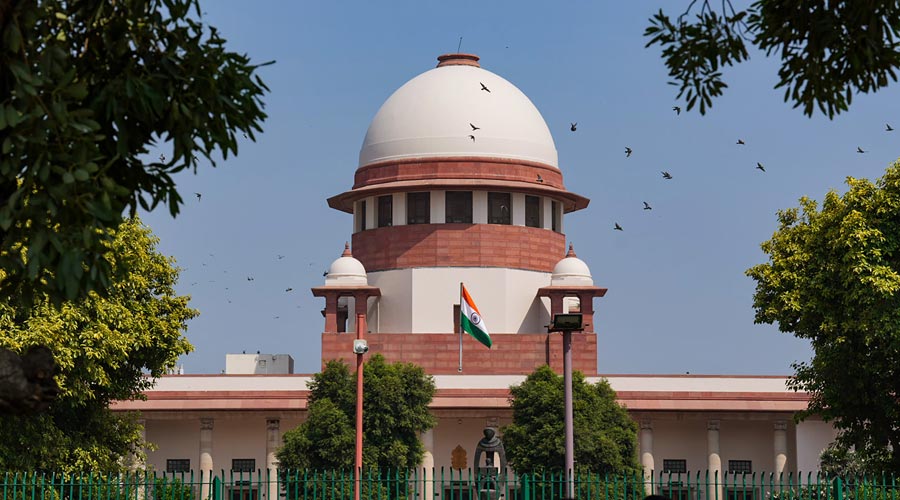The Supreme Court on Monday refused to accept the Centre’s “sealed cover” report on the delay in clearing the one-rank-one-pension (Orop) arrears of former defence personnel, saying “we need to put an end to this sealed-cover business”.
But it modified an earlier order to allow staggered payment of the Orop arrears till February 28 next year.
The government had argued that paying the arrears in one go to the around 21 lakh eligible pensioners would have “serious implications” for India’s defence management.
A bench headed by Chief Justice of India D.Y. Chandrachud rejected a plea from attorney-general R. Venkataramani to be allowed to place in a sealed cover the government’s suggestions about staggered payment of the arrears.
He told Venkataramani, appearing for the defence ministry, that the judicial process had to be transparent, and that the practice of governments submitting reports in sealed covers was fundamentally unfair since it prevented the other parties from learning their contents.
The bench, which included Justices P.S. Narasimha and J.B. Pardiwala, directed that the Orop arrears since 2019 be paid:
■ By April 30 this year to family pensioners and gallantry award winners (6 lakh people);
■ By June 30 to veterans older than 70 years (around 4 lakh people);
■ To the rest (10-11 lakh people) in three instalments: by August 31 and November 30 this year and February 28 next year.
The bench had earlier said the entire arrears must be paid by March 15 this year.
On Monday, it modified the order on the ground of national interest, noting that according to the Centre, the outgo would amount to Rs 28,000 crore.
The Narendra Modi government has, in particular, faced criticism for its widespread use of the sealed-cover route. It did so while submitting various documents during the hearing of public interest pleas alleging massive irregularities in the Rafale deal.
Subsequently, the apex court exonerated the Centre in the matter. Besides the Centre, various states have been seeking permission from the apex court to place details relating to politically sensitive cases in sealed-cover reports.
On Monday, Justice Chandrachud said: “If we follow sealed covers, then high courts follow it and there needs to be an end to it. We need to put an end to this sealed-cover business.”
Venkataramani continued pleading that the matter was “sensitive” but the CJI said: “Please share the sealed cover with the other side or take him (senior advocate Huzefa Ahmadi, appearing for some veterans) to the chamber.”
Justice Chandrachud added: “I am personally averse to sealed covers. What happens is that it is something which we can see and he (other side) does not see. This is fundamentally contrary to the judicial process. There cannot be secrecy in the court. The court has to be transparent.”
The bench said sealed-cover reports might be justified with regard to the case diaries maintained by police since the accused are not entitled to copies of these documents.
“But this payment of pension is pursuant to our directions. So, what can be the secrecy? Sorry, sorry, we will not take this sealed cover,” the CJI said.











